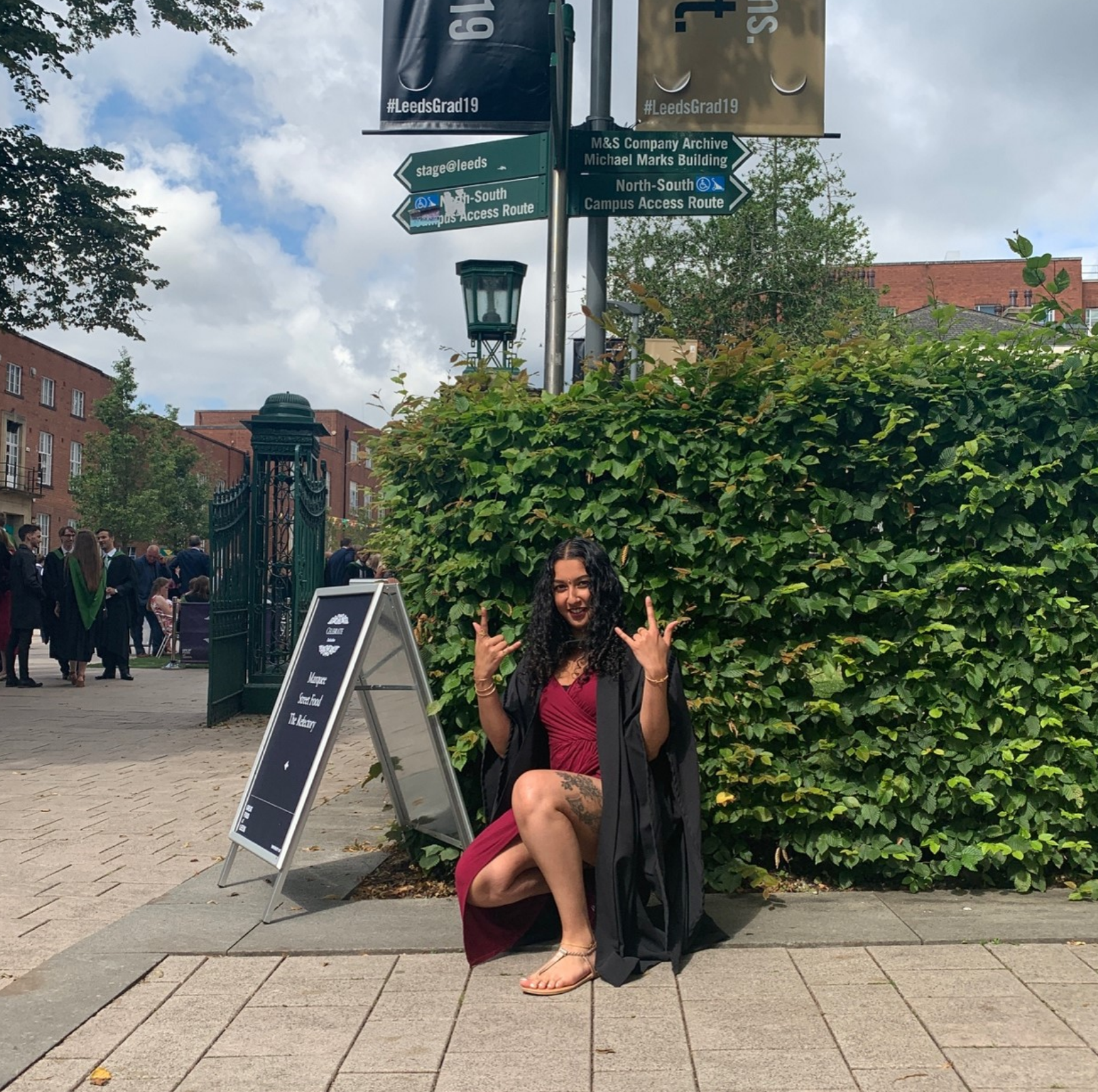
BA Geography and Sociology, University of Leeds
Sociology PhD student at Georgia State University
What drew me to Geography? Honestly, I think being a 2nd generation immigrant in the UK places so many of us in a liminal space where we are trying to understand this duality of living in the centre of empire while also having deep personal connections to the global South. I was raised in a Guyanese household, through and through, and Geography was the only subject in school where I got to learn about things like migration, globalisation, nationality and gentrification. At my predominantly white school, engaging with these topics was the first time I felt vaguely seen in the classroom. 2015-2019, I was blessed to be able to do a Joint Honours degree in both Geography and Sociology. I view myself as an ‘anti-disciplinary’ thinker so drawing on multiple disciplines is crucial to my work. Geography allowed me to always centre a spatial element in my research. Socio-spatial dynamics and emotional geographies, particularly as they relate to marginalised people, fascinate me.
I had to endure numerous challenges while navigating Geography. It was exhausting to be the only/one of a few students of colour in the room and to engage in a purely Eurocentric curriculum. I did not have one lecturer of colour in Geography and I was both marked down and had to appeal grades because of choices I made to centre my essays and research on women of colour and other oppressed groups. For my final assignment, I made a podcast about Guyana and all the feedback was about Ghana. It was beyond ironic in a Geography department. Despite all of this, I graduated with the highest overall mark in the School of Geography.
Thankfully, there is always light amidst the struggle and so after 3 years of pure whiteness, I met two of the only other women of colour in my year which was incredible. Immediately, I felt solidarity and we worked on and advocated for a lot of change that we hoped would benefit future generations. It was important for us to highlight ongoing issues; the need for curricula and pedagogical changes, more spaces for Black and brown students and increasing student and faculty diversity. Our biggest success was organising Why Is My Curriculum White: Decolonising Geographies where Professor Patricia Daley, Dr. Patricia Noxolo, Dr. Laura Loyola Hernández and Dr. Fozia Bora came together for a national conversation on epistemic violence and decolonisation. People travelled and attended from all over the UK! Our event sparked a lot of dialogue across the university as well as curricula changes. We also won the Equality and Inclusion Award for our collaborative work.
Currently I am in my third year of a joint MA/PhD program in Sociology in the US. I am very fortunate to have this opportunity as while there are a plethora of issues in the US and UK, I could not imagine still dealing with the omnipresent whiteness in UK academia. My supervisor here is an amazing Black feminist woman and I have been able to teach so many 1st generation students and/or students of colour. In January 2022, I was honoured to become a published author with an interdisciplinary Geography and Sociology book chapter on urban spaces and intersecting oppressions. Right now, I am working on some other publications focused on 1) microaggressions, 2) COVID-19 and Black communities and 3) being an international doctoral student in the US. All of my work draws on decolonial feminist thought. I hope to continue in the field of education in whatever capacity that may look like. My life purpose is clear to me and that is to be part of the movement(s) towards liberation. I believe a holistic and decolonial education is fundamental to a more just future.